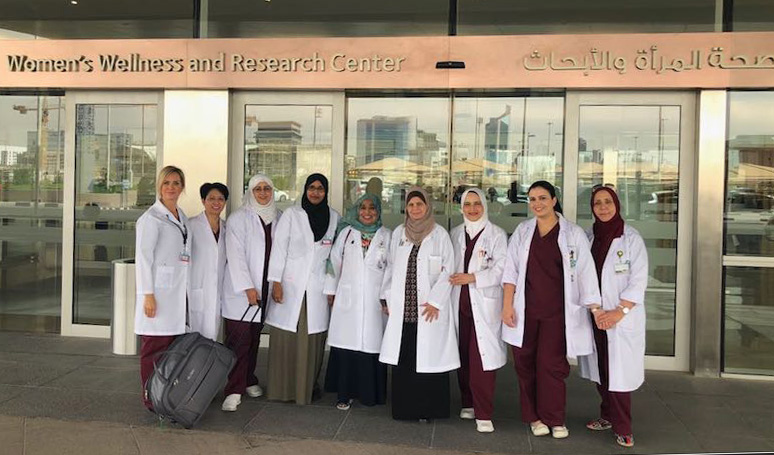Since a pilot post-natal midwifery home care programme for new mothers was launched at the Women’s Wellness and Research Center (WWRC) of Hamad Medical Corporation (HMC) last year, more than 1,200 new mothers and their babies have benefited from the service.
The programme, the first of its kind in Qatar, is based on international best practice and adapted to support the local community. It aims to provide post-partum care to women and their babies within the comfort of their own home in the days or weeks following the birth of their baby. While there are plans to expand the service, it is currently only available to new mothers with high-risk pregnancy and those who went through caesarian delivery.
 According to Sister Haila Swaid Salim, Executive Director of Nursing at WWRC, a key feature of the service is providing important information to new mothers, identifying when additional support is needed, and intervening when any intervention is required. She said that their team of four midwives conducts an average of 200 visits per month, with eight to ten visits each day.
According to Sister Haila Swaid Salim, Executive Director of Nursing at WWRC, a key feature of the service is providing important information to new mothers, identifying when additional support is needed, and intervening when any intervention is required. She said that their team of four midwives conducts an average of 200 visits per month, with eight to ten visits each day.
Sister Salim said that during the post-partum period, new mothers and their newborns are vulnerable, both physically and emotionally. Providing support during this time can help in the early detection and diagnosis of post-natal complications.
The early detection of post-natal complications has resulted in improved patient outcomes. We have been able to assist women who were experiencing post-delivery complications to get timely and appropriate referrals to specialist care and we have also helped new mothers navigate the various care services available to them.’
She said that the midwives are supporting mothers and their newborns to safely transition from hospital to home by identifying and preventing many common maternal and newborn health issues. She said the home visits can also help boost the confidence of first-time mothers.
The programme is doing exactly what it was intended to do, which is helping new mothers address many of the common issues encountered during the early post-partum period, tailoring the care to each patient. The use of a post-natal care pathway has been shown to be the best way of providing individualised care for mothers and babies, following the international guidelines of the World Health Organisation and the UK-based NICE programme (National Institute of Clinical Excellence).’
In addition to increasing patient satisfaction and supporting the safe early discharge of new mothers and their babies, Sister Salim said the programme has helped reduce hospital readmission rates through early detection of complications and prompt referral of patients to appropriate community health service providers, including mobile doctors. The programme has also resulted in reduced incidence of post-partum infections especially for mothers with C-section wounds.
Understanding and Advancing Patient Safety at Home will be featured in a learning session during the Middle East Forum on Quality and Safety in Healthcare. The session will be jointly presented on 24 March by Dr Tejal Gandhi, Dr Hanadi Al Hamad and Nadya Al Anzi. Visit MEF2019.hamad.qa for more information.








